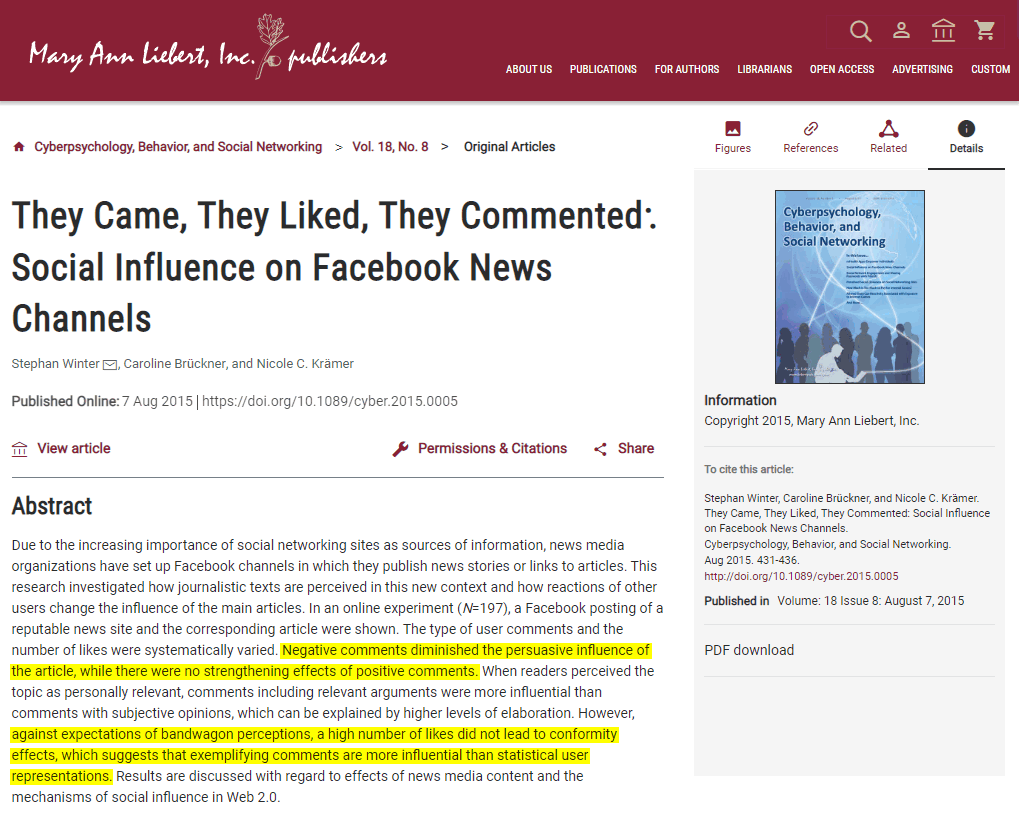This is why news sites deleted all their comment sections. This is why they censor you on social media. This is why companies and campaigns hire content farms to bury dissent beneath a flood of approval.
They know the research shows dissenting comments reduce the persuasiveness of their propaganda, while likes and approving comments have no such persuasive power.
- Dissenting comments are more persuasive than high numbers of likes.
- Dissenting comments reduce the persuasiveness of news article content.
- Comments in agreement with article content have no such persuasive impact.
